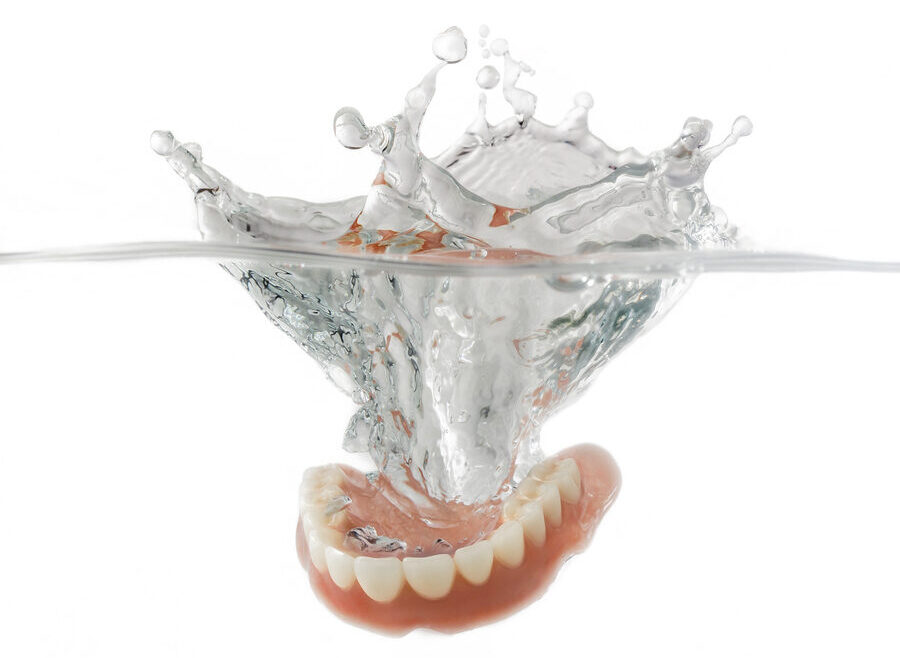How to Properly Clean Dentures: Removing Tartar & Stains

Dentures are, for many people, a major part of their life that greatly improves both their health and quality of life. If you wear dentures, you should try to keep them in good condition so that you can enjoy easier eating, improved speech and a full smile. Over time, dentures experience things like staining and tartar buildup – just like regular teeth – so regular maintenance is important to keep them in top condition. In this article, we’ll learn how to properly clean dentures and tips for removing tartar and stains.
How Often Should I Clean My Dentures?
Staying on top of your oral health with dentures largely relies on consistent cleaning. By cleaning your dentures daily, you drastically prevent the risk of tartar and stain build-up while maintaining good oral hygiene. Below is an example of a daily routine that you can use to keep your dentures clean:
• Rinse After Eating: Immediately after each meal, remove your dentures and rinse them under water to dislodge food particles.
• Brushing: Use a soft-bristled brush specifically designed for dentures along with a non-abrasive denture cleaner. Avoid regular toothpaste as it can be too harsh for the denture material.
• Soaking Overnight: Dentures should be kept moist to maintain their shape. Soak them overnight in water or a mild denture-soaking solution recommended by your dental professional.
It’s important to avoid common cleaning mistakes such as using hot water, which can warp dentures, or abrasive materials that can scratch and damage them – so stick with the tips above.
What if I Have Metal Dentures?
Metal dentures require a slightly different care approach compared to entirely acrylic ones. The metal parts need to be handled carefully to avoid corrosion. Ensure you use solutions that are safe for metal and avoid soaking them in chlorine-based products as they can tarnish and weaken the metal components. Consulting your dentist for recommended cleaners and practices for your specific type of metal dentures is always best.
Removing Tartar Buildup on Your Dentures
Tartar, or dental calculus, is a hardened deposit that can form on dentures just as it does on natural teeth, often at the gum line. Removing tartar once it has formed can be challenging and may require professional help.
However, regular use of specialised denture-cleaning tablets can help prevent and reduce tartar buildup. These products are formulated to gently break down tartar without damaging the denture material. If tartar becomes noticeable and difficult to remove, it’s advisable to seek professional cleaning services from a dental professional.
Tackling Tough Denture Stains
Dentures are susceptible to staining from common beverages like coffee, tea, and red wine, as well as from smoking. To tackle tough stains, you can try using some baking soda paste on your dentures. Mix a small amount of baking soda with water to create a gentle cleaning paste. Apply this to the stained areas of the denture with a soft brush.
The best way to deal with stains on your dentures is to avoid it in the first place. This can be done with consistent cleaning and rinsing of your dentures after consuming potentially staining substances. Using a straw when drinking stain-causing beverages can also reduce direct contact with the dentures.
Maintaining Denture Health
Regular check-ups with your dentist helps to ensure your dentures are in good condition and properly fitted. Over time, dentures may become loose due to natural changes in your mouth and jaw. Proper storage is also key; when not in use, keep your dentures in a safe, moist environment to prevent drying out and warping.
Lifestyle choices can also impact the longevity of your dentures. A balanced diet that minimises extremely hard or sticky foods can reduce wear and tear. If you smoke, then consider quitting as it can reduce staining and deterioration of denture materials.
Additional Denture Care Tips
Beyond daily maintenance, it’s important to monitor your dentures for any needed adjustments or repairs. If you notice discomfort or changes in the fit of your dentures, consult a dental professional for assistance. Never attempt to adjust or repair your dentures yourself as DIY fixes can cause irreparable damage.
Poorly maintained dentures can lead to a range of oral health issues, including infections, sores, and even changes in facial structure. Regular cleaning, proper handling, and ongoing dental check-ups can prevent these problems and keep your smile looking its best.
If you have any questions about your dentures, or would like to discuss a denture consultation, please get in touch with our team at Denturly today.
View our denture clinics
Find a Denturly clinic near you. We are always expanding our nationwide network of clinics to make our service more accessible.